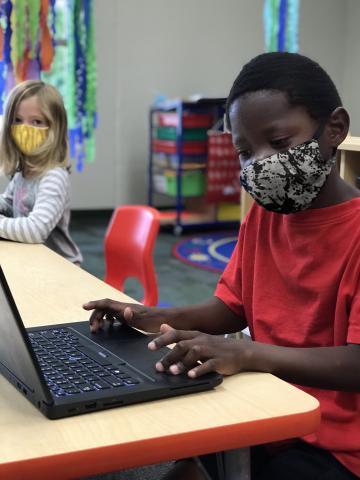
Less Support for Low-Income Kids in the After-School Hours Is Cause for Concern
The toll the pandemic is taking on America’s moms is well documented and truly concerning, not just for moms but also for families and our country. At this time when millions more families are struggling to make ends meet, Moms are leaving the workforce because of the unmanageable burdens thrust on them as schools close or go virtual, child care programs close, and we all try to adapt to the safety protocols we need to stay safe. But there’s another aspect of moms’ struggle that is threatening families and our recovery: the fact that so many of the afterschool programs parents rely on are struggling for survival.
National surveys commissioned by the Afterschool Alliance find that a large majority of afterschool programs that are open this fall report they are straining to meet the needs of the students and families they have long supported. Both parents and afterschool programs are being challenged by virtual learning and changing school schedules. Not surprisingly, afterschool programs say their limited budgets are not adequate to implement COVID-related safety protocols and meet students’ emerging needs, as schools cut back on hours or go entirely virtual.
The surveys also identify an emerging equity problem. For years, federally funded afterschool and summer learning programs have served students from low-income families, promoting equity and opportunity in ways few institutions do. But now, the surveys found, students from low-income families are much less likely than others to have access to out-of-school-time programs. Programs serving children from higher-income families are almost twice as likely as those serving children from low-income families to report being physically open (73% vs 38%). Among afterschool programs that are physically open, those serving children from higher-income families are more likely to be open to all children, including children of non-essential workers, than programs serving children from low-income families.
That’s especially problematic because afterschool programs provide homework help, STEM education, college readiness, social and emotional supports, access to the arts, healthy snacks and meals, and much more that low-income children and youth are unlikely to find anywhere else. Seventy-six percent of afterschool program providers serving mostly low-income students are concerned their students are facing food insecurity right now.
If the sustainability of afterschool programs is in jeopardy, the future of the students they serve is in jeopardy, too – and afterschool program closures loom large. Four in five afterschool program providers report concern about loss of funding to their program this year. Fully 89 percent are concerned about the long-term funding and the future of their program, with one in four expressing extreme concern their program will close permanently.
That’s why the out-of-school-time community is using this week’s Lights On Afterschool rally to urge lawmakers to step in and help. The U.S. Department of Education should expedite its waiver process to provide flexibility to local afterschool programs funded by the federal 21st Century Community Learning Centers (21st CCLC) initiative, so they can support students during all the hours schools are now closed. That should have happened months ago.
The U.S. Senate should join the House of Representatives in passing the 21st CCLC Coronavirus Relief Act, and both chambers should provide a onetime $6.2 billion boost in 21st CCLC funding to ensure out-of-school-time programs can do more to help during this difficult time. Students and families need and deserve this support.
Three in four parents agree that the pandemic has made them appreciate school teachers and afterschool program providers more than ever, with working parents more likely to agree. And lawmakers should pay attention: An overwhelming majority of parents favor public funding for afterschool (84%) and summer learning opportunities (84%). They know the strength and survival of afterschool programs is essential to moms, families, and our country’s future.
So please, take a minute to ask lawmakers at every level to support the afterschool and summer learning programs we need.
Afterschool Alliance Vice President of Research Nikki Yamashiro contributed to this blog post.


The views and opinions expressed in this post are those of the author(s) and do not necessarily reflect those of MomsRising.org.
MomsRising.org strongly encourages our readers to post comments in response to blog posts. We value diversity of opinions and perspectives. Our goals for this space are to be educational, thought-provoking, and respectful. So we actively moderate comments and we reserve the right to edit or remove comments that undermine these goals. Thanks!